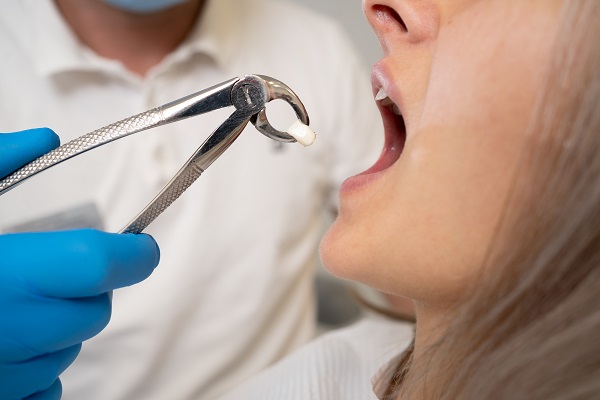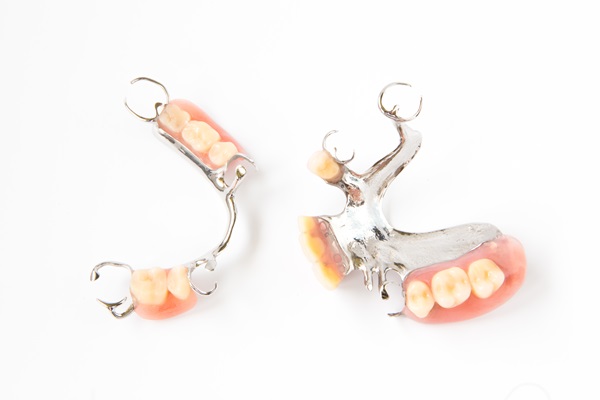When a Dental Emergency May Require Tooth Extractions
This article discusses when a dentist may recommend after an accident occurs. Tooth extractions may be necessary after a dental emergency if teeth are damaged beyond what dental restorations can address or if the teeth cannot be repositioned in their sockets properly.
When might tooth extractions be recommended?
A dental emergency can happen at the most unexpected times. It is important to seek prompt care for a dental emergency, such as dental trauma after a nasty fall or sporting accident. The following are times when tooth extractions may be recommended after a dental emergency occurs:
A tooth that cannot be properly repositioned in the socket
One of the most common reasons for tooth extraction after dental emergencies is that the tooth is knocked loose in the socket. In many cases when prompt care is provided, the dentist can reposition and stabilize a tooth that is knocked loose. However, this is not always possible, and there are times when it may be best to remove the tooth and replace it.
A chip or crack that is beyond restoration
Chips and cracks are the most common types of injuries to teeth as a result of dental trauma. In many cases, chips and cracks can be repaired with a dental crown, veneer, or another dental restoration. However, if a chip or crack extends toward the tooth’s root and the tooth is severely damaged, tooth extraction may be necessary.
A tooth has experienced severe tooth decay
Deep tooth decay can lead to severe symptoms that can turn into a dental emergency. If deep tooth decay compromises the tooth to the extent that it cannot be repaired by a filling or root canal, tooth extraction is the recommended option. A dentist can examine the severity of the decay and make a recommendation during the visit.
A tooth is severely infected beyond what a root canal can treat
A common reason for tooth extractions is severely infected teeth. A tooth infection can develop when bacteria invade the tooth’s root. This can also lead to a dental abscess. In many cases, root canal therapy can be performed to access the tooth’s root, remove the infected portion of the tooth, and fill the tooth. However, for severe infections, tooth extraction is the recommended solution.
The supporting structures of teeth are severely weakened
Gum disease is a common reason for tooth extractions. Gum disease severely weakens the gums and jawbone that support the teeth, leading to the teeth becoming loose. In many cases, particularly those in which the gums and jawbone cannot be restored, tooth extractions are the recommended solution, followed by the replacement of the extracted teeth.
FAQs about dental emergencies and tooth extractions
For more information, the following are three common questions that patients ask in regard to the extraction of a decayed, infected, and/or damaged tooth.
What do I do if my tooth is knocked out entirely?
In some cases, a knocked-out tooth can be repositioned and restabilized in the socket, particularly when the tooth is properly preserved and immediate action is taken by the patient. If the tooth cannot be saved, then the tooth replacement process can begin during the dental emergency visit.
Are extractions painful?
One of the biggest concerns that patients have is a painful tooth extraction experience. Many patients, unfortunately, do feel some discomfort during the extraction procedure. However, the dentist can help minimize the amount of discomfort through the use of a local anesthetic. Pain (and some minor swelling) may continue for 24 to 72 hours after the procedure. Patients can manage the pain and swelling they experience through over-the-counter pain relievers and at-home remedies (e.g., using a cold compress).
What are the risks of not having a damaged or infected tooth extracted?
Most dentists only recommend tooth extraction when saving the tooth is no longer an option. Although pulling the tooth can cause some discomfort, the discomforting symptoms related to decay, infection, and dental trauma are usually more severe and prolonged. Ultimately, the tooth is likely to fall out only after discomforting symptoms worsen and become severe and close to intolerable.
Get in touch with our office after a dental emergency
Our dental team can promptly treat dental trauma to limit the damage and minimize the invasiveness of treatment. When necessary, we can also perform tooth extractions followed by tooth replacement. Contact us today to schedule a visit for dental emergency treatment.
Request an appointment here: https://sandimassedation.com or call San Dimas Family and Sedation Dentistry at (909) 305-2300 for an appointment in our San Dimas office.
Check out what others are saying about our dental services on Yelp: .
Recent Posts
You may be feeling anxious about your upcoming tooth extraction. Most people arrive at the dental clinic and put their full trust in their dentist. This is fine, but it is still helpful to know what to expect the moment you walk through the clinic’s doors. If you want to know what you should expect…
A tooth extraction might be necessary for multiple instances. The tooth comes out of the patient’s mouth because of an infection or other reason. A dentist tries to keep the teeth intact as long as possible, but not every tooth can be saved. Keep reading to learn more about why you might need an extraction.Tooth…
Tooth extraction is a very common procedure that is usually recommended for the benefit of one’s oral health. But many people worry about tooth extraction pain. However, the good news is that modern anesthetic techniques make the procedure as comfortable as possible. It is important to follow your dentist’s aftercare instructions after the procedure. This…
If you have a problem with your tooth, your general/family dentist might recommend a tooth extraction. The dentist will extract the tooth and the root. You need to care for the extraction site after the procedure and also take measures to promote healing. Get some tips for post-extraction care.People get teeth pulled for various reasons.…


